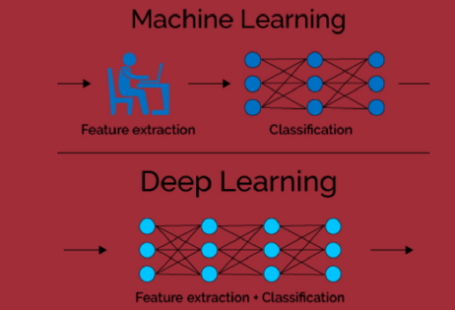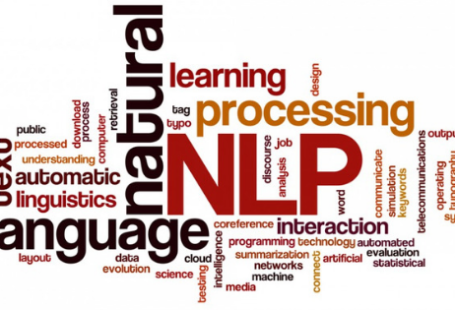Big Data is taking the industry by storm. Big Data stands for data that is very large and complex. It is difficult to process such data by the means of age-old methods. While companies have been accessing and storing huge amounts of data for a long time, big data is a recently coined term in order to drive growth. Big Data has helped transform businesses throughout the globe.
Big Data has brought a revolution in the industry by transforming the way companies operate. Recognised for its innovation, low cost of ownership and business intelligence, big data technologies have accelerated the processing. In the last couple of years, data-related jobs have gained momentum. Big data is one of the most in demand skills of 2022. There are different kinds of new occupations in the same field.
According to glassdoor.co.in, the annual average salary of big data engineers is $1,04,463. An increasing number of companies required experienced professionals to fill roles related to data. The dearth of qualified professionals in this field has given rise to high demand and great pay packages. For a successful Big Data career, candidates should have the necessary qualifications and expertise in the field. Here are some of the most sought-after positions in this field.
1. Data Architect
Data Architect visualizes and designs enterprise data management framework for an organization. The framework depicts the processes that are used for planning, specifying, enabling, creating, acquiring, maintaining, using, archiving, retrieving, controlling and purging data. These professionals even help companies build and maintain databases. They are responsible for developing strategies for every subject area concerning enterprise data model.
Data architects even communicate the plans and issues related to the executives of the company. In order to become a data architect, candidates need to have knowledge related to applied mathematics and statistics. Additional knowledge of DBMS software and SQL Server is a must. Companies look for professionals who are adept in data visualization, data modeling, and data migration.
2. Big Data Engineer
Similar to data analysts, big data engineers help companies by turning huge volumes of data into usable insights. These insights help different departments in the organization make informed business decisions. However, unlike data analysts, they have additional responsibilities. They need to retrieve, interpret and analyze data and report it to concerned officials. Big data engineer create and maintain software and hardware architecture, systems and processes of the companies.
Big Data Engineers need to be familiar with big data tools and business domain of the company. Their analytical skills, problem solving skills and data visualization skills help companies meet the objectives. For a big data engineer, familiarity with technologies, SQL and programming is must. Big data engineers are in high demand in the industry owing to their expertise.
3. Database Manager
The role of Database Managers revolves around developing and maintaining database of the organization. They even help companies in creating data storage and retrieving systems. Their day to day activities include troubleshooting database issues, implementing database recovery procedures and taking care of safety protocols. They are responsible for supervising database teams in companies.
In incidents of crises, database managers identify problems related to data and take remedial measures if required. Companies even require these professionals to assist with storage hardware design and implementation. Database managers need to work in tandem with database developers. Some organizations ask database managers to provide training to staff at lower-level. Candidates with strong problem solving and analytical skills are preferred for database manager roles. Understanding of SQL, database technologies, analytical skills is a must for higher roles.
4. Data Security Analyst
The role of data security analyst is to perform security audits, risk analysis and risk assessment. The professional makes recommendations to enhance data systems security. He or she researches attempted data security breach and helps rectify security weakness if any. They even formulate security policies. To become a data security analyst, a candidate needs to have skills related to scripting, intrusion detection, operating systems, cloud, controls and frameworks, network security control, DevOps among others.
5. Data Scientist
Organizations require data scientist to identify problems concerning data-analytics. These professionals help determine accurate data sets. They are even required to collect large sets of both structured and unstructured data from different sources. Nowadays, companies require data scientists to design new processes related to modeling, production and data mining. Their role even involves developing algorithms and prototypes, custom analysis, and predictive models.
Candidates willing to become data scientists need to have skills related to programming, data wrangling, data visualization, cloud computing, multivariate calculus, linear algebra, probability and of course, database management. Companies look for professionals who have previous experience.
6. Business Intelligence Analyst
There is a huge demand for business intelligence analysts in companies nowadays. The role involves leveraging business data while identifying opportunities related to spot trends, and improvement. These professionals help companies in recognizing potential issues and offer apt solutions for the same. The objective is to improve efficiency, increase productivity while aiming at profits. Basically, business intelligence analysts focus on operational insights in an organization.
As opposed to business intelligence analysts, business analytics professionals focus on overall functioning and routine business operations. The latter deals with practical applications of the insights inferred from data, while the former is concerned more with the technical aspects of the analysis. The insights obtained from data are used for decision making by companies. To become a business intelligence analyst, a candidate needs to have analytical skills and experience in database queries.
7. Database Developer
Database developers are required to develop, test, improve and maintain new and existing databases for helping users in data retrieval. Database developers are part of the IT department in an organization. They work in tandem with IT developers for ensuring consistency in the system. The role of database developers involves analyzing present database processes for modernizing, streamlining and eliminating inefficient coding.
Companies require database developers to monitor the performance of database, develop new database and troubleshoot issues as and when they erupt. Candidates with experience in programming languages are preferred for such roles. They are required to be adept in designing and implementing business processes into efficient code.
8. Data Modeler
There is an increasing need among businesses for data modeler. These professionals analyze and translate business needs into data model solutions that are effective for long term. These help evaluate existing data systems. Their role requires them to work with development team for creating conceptual data models and data flows. Companies require data modelers to develop best practices concerning data coding for ensuring consistency in the system. Data modelers are required to translate huge volumes of data into workable insights. They need to be skilled in information science, statistical analysis with expertise in programming skills.
9. Data Analyst
In modern day organizations, role of data analyst has become more of an encompassing one. These professionals have become the gatekeeper for companies’ data to make stakeholders understand the huge volumes of data and utilize it for making strategic decisions. The role of a data analyst is that of a technical one. They should preferably have an undergraduate degree along with a master’s degree in science, math, analytics, or computer modeling.
Data analysts help organizations take better decisions based on the insights they gather from the large volumes of data. Almost all the organizations irrespective of the areas require data analysts as they help improve the work systems for making future insights easier. The objective of having the data analytics position is to develop methods that help analyze data for reproduction and scalability.
10. Database Administrator
The main role of database administrators is to work with database software for finding different ways of storing, organizing and managing data. These professionals help companies in database design, database development, troubleshooting, database access and keeping the database updated. They even design maintenance procedures and execute them. Database administrators work in tandem with IT security professionals for ensuring data security. They need to possess prior experience working with database administration teams.
Like other professionals, database administrators need to have skills related to problem-solving, organizational, interpersonal as well as communication skills. They should be patient while giving attention to details. Having a logical approach to prioritize tasks helps them get selected by companies.
Final Word
Armed with the right qualifications, anyone with the interest in Big Data can choose this field. The industry is growing rapidly and there is dearth of Big Data professionals who can help companies meet their objectives efficiently.
Author Bio
Sakshi Baid works as a Product Associate at Refrens.com – Invoice generator & India’s most powerful platform for freelancer’s growth. She has worked for some renowned companies as a Brand and Digital marketing associate. You can follow Refrens.com on Twitter, LinkedIn, and Instagram.






